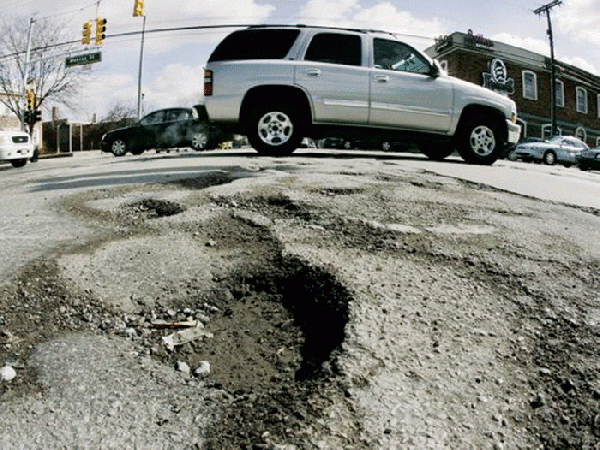
DEARBORN — The few voters who turned out at the polls on Tuesday rejected Proposal 1 by a landslide.
The proposal, aimed at allocating revenue to fixing the state’s roads and bridges by increasing the sales tax by 1 percent, brought out 1.4 million residents to vote against it. Across the state, only 351,000 people voted yes.
Records show that the proposal, at over an 80 percent rejection rate, was the largest ever one-sided loss in the state’s history.
Critics are pointing to a number of issues that went wrong with the proposal, champiooned by Gov. Snyder. Many residents were left confused about the messaging in the campaign, uncertain with how the proposal would work if they voted “yes” on it. Another aspect of the campaign focused on how the proposal would provide more funding for public schools, also confusing residents.
Another major hit for the proposal was that it was put on a ballot during a non-election month. Most residents are aware that elections typically occur the first Tuesday of August or the first Tuesday of November. On Tuesday, May 5, the proposal came and went with many residents not even realizing that it was an election day.
That certainly appeared to be the case in cities like Dearborn. According to the city clerk’s office, there was only a 19.5 percent voter turnout rate at the polls, with 11,569 ballots cast total. Twenty-one percent of residents voted in favor of the proposal (2,428 votes), on par with the state average, while 9,110 residents came out to the polls to reject the proposal.
In Dearborn Heights, only 7,354 votes were cast, a turnout rate of just 19 percent. The percentage rate among residents who favored the proposal was even lower than the average statewide. Only 1,041 people voted yes, a 14.2 percent approval. By contrast, 6,287 Dearborn Heights residents voted no.
Residents didn’t appear phased that that the proposal was backed heavily by local leaders, including Dearborn Mayor Jack O’Reilly, Dearborn Heights Mayor Dan Paletko, Wayne County Executive Warren Evans and other county leaders, who attended a press conference led by Gov. Snyder in Dearborn in March.
Following the election results, Snyder issued a statement stressing that the state’s infrastructure needs to remain the top priority.
“While voters didn’t support this particular proposal, we know they want action taken to maintain and improve our roads and bridges,” Snyder said. “The relentless part of relentless positive action means that we start anew to find a comprehensive, long-term solution to this problem. Doing nothing isn’t an option as the costs are too great.”
Snyder noted that he would continue to work with legislators, from a bipartisan standpoint, to come up with a solution to improve Michigan’s roads. Prior to election day, the Proposal 1 campaign had hinted that approving the measure would be the only resort left.
“Michiganders need to be able to get behind the wheel and not worry about dodging potholes or seeing plywood to catch crumbling concrete under overpasses,” Snyder added. “We appreciate that this bipartisan plan was supported by so many groups business leaders and unions, public safety officials and local governments, teachers, and the list goes on. I plan to work with my partners in the Legislature on a solution that gives Michigan residents the safe roads they need and deserve and bolsters our growing economy.”
The Green Party of Michigan applauded residents’ overwhelming rejection of the vote, stating that the results speak highly on the lack of trust in legislators. The GPMI stated that it has a different approach in tackling Michigan’s infrastructure.
“Whatever fuel our internal-combustion engines use, the exhaust pumps more carbon dioxide into the atmosphere. Efficiency helps but to reduce our contribution to climate change; we need to do less driving and much less flying. GPMI supports building a good network of efficient public transportation while minimizing use of destructive road salt.”






Leave a Reply